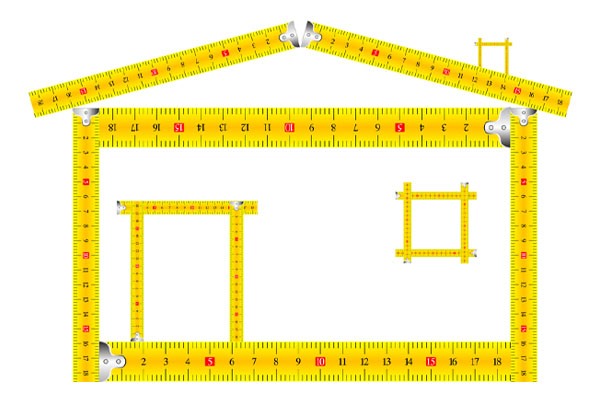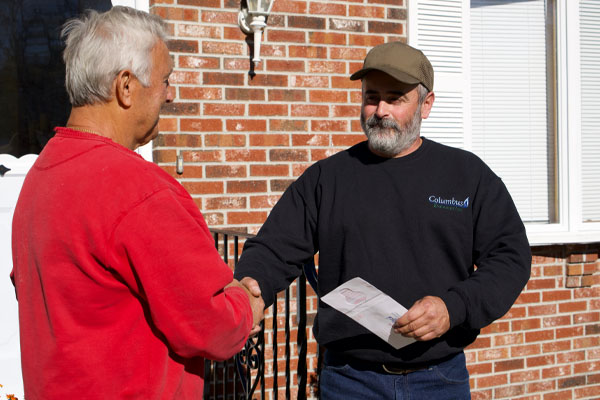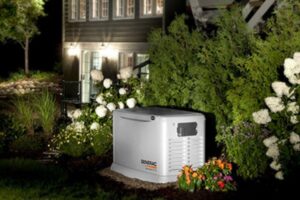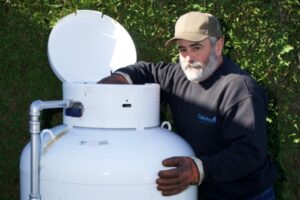How To Size A Standby Generator?

Contents
Generators can provide you power during blackouts or in regions where there may be unavailable power supplies. Generators come in different kinds, each having their own needs and wattage. One of the most common types is called whole-home generators. Many homeowners ask us about how to size a standby generator. Keep reading to learn the answer to this question.
What Are Whole-House Generators?
Whole-house generators are also called backup, standby, or on-demand generators. This type of generator supplies power to an entire home when there are outages that natural disasters or man-made errors may cause. These generators are ideal for extended outages. They can deliver energy to your whole house, including all appliances and devices, such as your heating and air conditioning system.
They are also usually known as emergency generators. They are large units and are installed on your property. They also add a lot of value to your home. Standby generators are dependable and offer your family peace of mind. The best part is they don’t need human intervention as they work automatically. This means they switch on automatically when a power outage or interruption occurs. You don’t need to turn it off as this function is also automatic.
Whole-home generators can power your refrigerator so your food doesn’t spoil. It can also support your security system, so you have constant security at home, which is helpful during disasters. They can supply power to your appliances as if there is no power outage. However, you should first ensure that you have the right standby generator size before installing one in your home. This will ensure that the whole-house generator has sufficient power to run all your appliances, especially those that are power-hungry.
What Is Standby Generator Size?
Buying a generator translates to understanding how much power your home needs to run. Generator sizes are based on electrical output and not its dimensions. However, you still need to set aside some space to install it on your property.
Watts or kilowatts (kW) is the measurement of a generator’s electrical output. One kilowatt equals 1000 watts. Remember this when you are determining the size.
Many homeowners make mistakes when finding out the size they need. They typically underestimate the watts they need, purchasing a generator too small to fit their needs. When this happens, your generator becomes overloaded, forcing it to supply more power than it can manage. This will lead to overheating, which will then automatically turn off the generator. It may also result in damage to the generator. On the other hand, a generator that’s too large means you may have to pay more for the unit to run. You must consult an HVAC professional to figure out the power size before installing a standby generator.
How To Size A Standby Generator?

Calculating the size of your standby generator is a simple process. A calculator is needed. The first step is determining which devices you want to power around your home. Check the manual for any big appliances you have. This will help you determine the running wattage they need to operate. Multiply this amount by three. Note the starting wattage as well. Add up all these appliances to get the total wattage you need for your generator.
However, you first need to understand what these wattages are. The starting wattage is the initial load required to start electrical devices from a dead stop. Some appliances, like compressors and motors, require high starting loads. Whereas the running load is the load required for the device to run continuously after the initial start.
The formula is as follows: (Starting wattage x 3) + running wattage
For instance, your refrigerator’s starting wattage is 700 watts. You get 2100 after multiplying it by three, which is its load on your generator. After its start-up, it will use 300 watts. Therefore, your refrigerator’s total load on your generator is 2400 watts.
The generator must meet this value to run a refrigerator. You need to do this for all your appliances and electrical devices to determine the total wattage of your generator. These are the minimum figures, so you should keep some overhead to keep the generator from overloading and shorting.
Do I Need Professional Standby Generator Help?

You may have thought about doing it yourself, but it is a time-consuming process that may go wrong. One miscalculation can lead to your generator shorting from overload. Therefore, it is recommended to have a professional assist you.
Hiring a professional ensures all your electrical devices and appliances are accounted for before installing a generator. A professional ensures that all wiring and installation are done correctly. They will make sure that the installed generator works as it should and can take the load of all your appliances seamlessly.
Whole-house generators also require maintenance, so hiring a professional is the best method for this task. They can ensure your generator is in excellent working and running as intended.
Final Words
Installing a whole-house generator is a great idea that requires proper execution. You should calculate the wattage of all devices and appliances you want to power throughout your home. Confirm that you have an accurate calculation. If not, the newly installed generator will burn out. Hiring a professional will ensure this is a stress-free process. You don’t have to worry about complicated calculations and whether they will work because a professional will do it for you.
Call Columbus Energies For All Your Standby Generator Requirements

Columbus Energies provides excellent generator installation services throughout Rhode Island and Southern Massachusetts. Aside from backup generator installation, our company also offers repair, replacement, and tune-up services. We hire only the best professionally certified contractors who are highly skilled and well-trained in the most advanced HVAC and generator techniques.
Call or contact us online today to learn more information on a whole-house generator installation. Rest assured, our experienced HVAC experts can answer all of your generator questions. We offer free, in-home estimates. Call Columbus Energies today!
Contact us now by calling (508) 674-1492 to speak to one of our home comfort specialists!
Related Articles:









